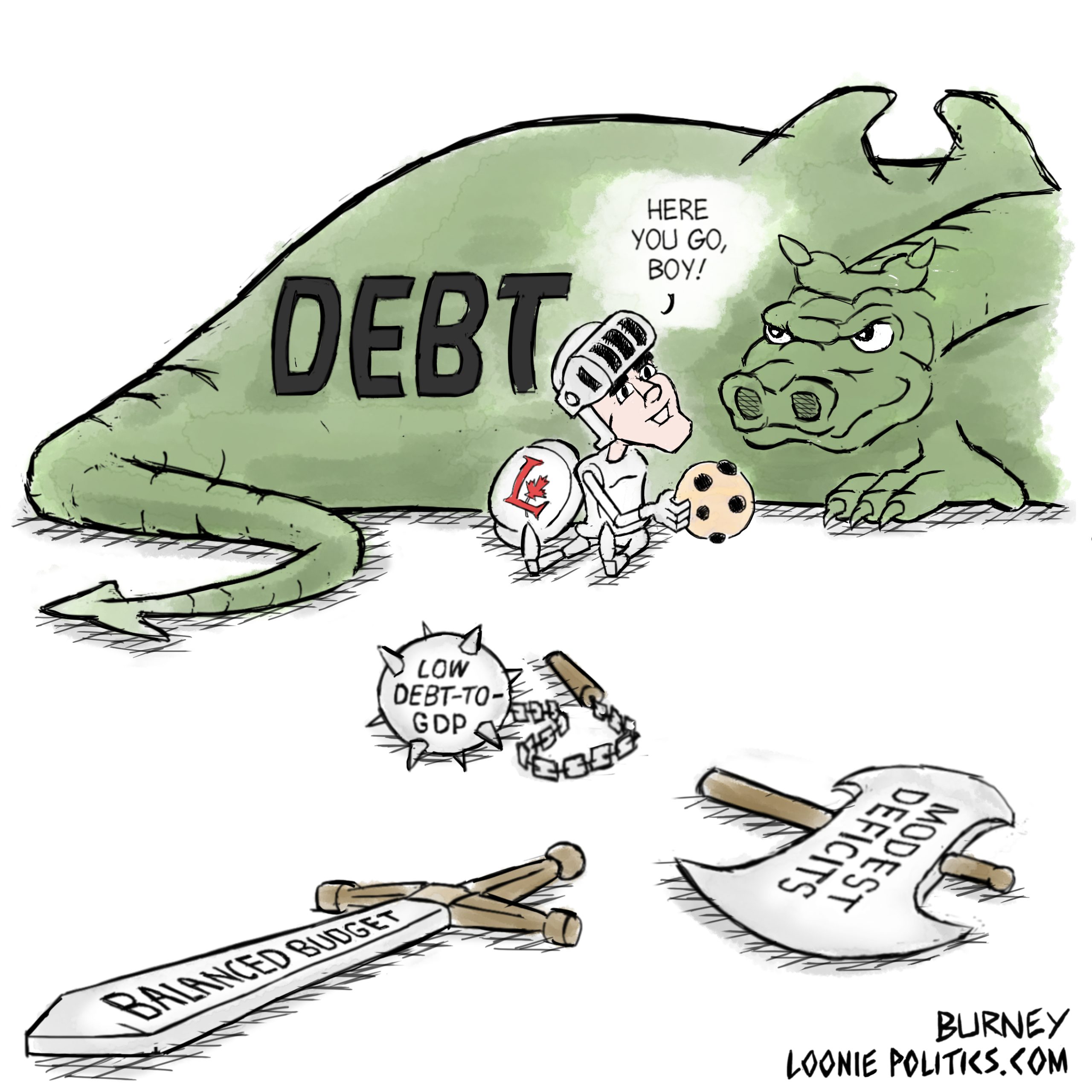Word of advice to wanna-be politicians — if you want to succeed in the business of politics, don't depend on economists for strategic guidance.
After all, economists are trained to focus on "academicky" intellectual concepts such as "price elasticity", "aggregate demand" and "opportunity cost," stuff average voters don't really care too much about or even understand.
Nor do they want to understand.
Hard to imagine any politician, for instance, winning votes by promising to increase the country's "capacity utilization."
For this reason, it's also difficult to believe average Canadian voters share the concerns of some economists when it comes to Canada's national deficit and debt situation.
And yes, economists are fretting about Canada's debts and deficits at least some are.
Case in point, I recently received a message from the Fraser Institute, a Vancouver-based economic think tank, ringing alarm bells about the dangers this country will face due to the rapidly growing national debt.
Warned the Institute: "Combined federal and provincial debt in Canada has doubled from $1.0 trillion in 2007/08 to a projected $2.0 trillion this year."
Also, says the Fraser Institute, "Government debt — federally and in every province — has grown substantially over the past 13 years, creating serious fiscal challenges for Ottawa and provincial governments in the years ahead."
Yes, that all sounds pretty ominous, but does any of this really matter politically? Should, in other words, Erin O'Toole and the Conservatives make reducing the debt their number one campaign pledge in the upcoming federal election?
While the Fraser Institute would say "yes", a political consultant would say "no."
No because, for most people, massive debt/deficit numbers like the ones the Fraser Institute is trotting out, are too massive for the mind of anyone who's not an economist or astronomer to comprehend.
You might as well say the national debt has gone from one gazzillion dollars to two gazzillion dollars.
It's just an abstract concept with no real meaning.
I know all about this from personal experience.
Back in the late 1980s while working for a conservative advocacy group called the National Citizens Coalition, I helped put together a media ad campaign designed to alert Canadians to the dangers of the debt and deficit.
And believe me, this NCC campaign would have made any economist proud not only did it include massive numbers, it even featured graphs and charts!
At any rate, we launched a marketing test of our campaign by blitzing Dawson Creek, British Columbia with a flurry of radio spots and newspaper ads, hammering the area with mountains of info, to whip up the populace into a rage so they'd take action against Canada's snowballing $40 billion deficit (seems quaint by today's standards.)
Unfortunately for us, however, the entire campaign was a bust.
To put it simply, nobody cared; our efforts generated virtually no response.
So, what happened?
Well, after doing a little analysis, we realized the people we targeted didn't really grasp the astronomical numbers we threw at them.
Hence, we retooled our campaign and tried again.
This time, however, instead of running a campaign for economists, we ran one for regular people, putting out a booklet, called "Tales from the Tax Trough" which exposed example after example of ridiculous government waste using numbers that existed within the realm of everyday comprehension.
For example, rather than bewailing a $40 billion deficit, we pointed out how the government was spending $400,000 on hot air balloon championships in Quebec.
And just to make the booklet a little more appealing, we scrapped the graphs and charts and adorned our it with cartoons of adorable little pigs.
This approach worked.
When they saw how their tax dollars were being frittered away, people got angry and angry people are the ones who will contact their MPs demanding action.
So, the lesson here for O'Toole and the Conservatives is pretty obvious.
Instead of railing against incomprehensible Liberal deficits and debts, they should focus on Liberal misdeeds which average voters can relate to.
Also, it'd probably be a good idea if he used cartoon pigs.
Photo Credit: Jeff Burney, Loonie Politics






